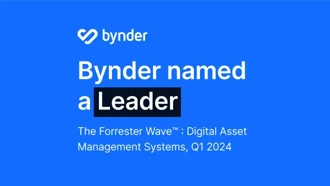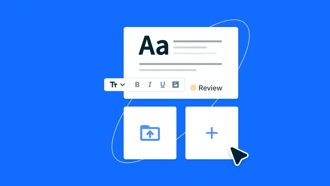What is a stakeholder interview?
A stakeholder interview is a one-to-one conversation conducted with anyone who holds a vested interest in your organization and what it provides.
For example, this could be a member of senior management, a sales team member, a customer, or other kinds of audience members.
Stakeholders are interviewed for both their opinions and their insights. The answers they provide to your questions could be based on their direct experience of using your product or service and/or the knowledge they hold because they work in another part of the business.
A stakeholder matrix can be a helpful tool for mapping out all of the different stakeholders relevant to your organization.
The benefits of conducting stakeholder interviews
- Understand a stakeholder type's needs and wants
- Discover the best way to work with them in future
- Extract valuable insights and gain exposure to new ideas
- Learn what the common points of friction are
- Unlock what makes that stakeholder audience 'tick'
Key to gathering all of this useful information is, of course, asking the right questions. But it's also a good idea to consider when and how you're conducting your stakeholder interviews.
Speak to a wide variety of stakeholders if you can; including those who may not initially seem to be onside with what you're trying to achieve with your upcoming project or initiative (this also provides some balance to your results!).
Key points to remember when interviewing stakeholders
- Ideally, you should be running your stakeholder interviews during the 'discovery' phase of a new project. This allows you to collect information in good time, and can also help your important stakeholder groups feel as though they are being included and 'heard'.
- Always try to ask 'open questions' (i.e. not 'yes' or 'no' questions),
- Instead of taking notes, film or record your stakeholder interviews to keep the conversation flowing. It can also make your interview subject feel more relaxed if your exchange with them is subject to fewer interruptions.
- During each interview, give your full attention to stakeholders; actively listening to their input whilst you're mentally gearing yourself up to ask the next question.
- Give your interviewee ample time to answer each question. Rushing through a list of questions just to meet a time deadline is the wrong approach and you may end up with a less helpful set of answers.
- Avoid any internal politics and the sharing of your own views while you're conducting interviews — act as neutral as possible.
- Feel the freedom to ask supplementary questions to the ones you've prepared in advance — if it feels appropriate to do so.
- To achieve the most impact, any useful insights you establish after you've analysed the data should be fed into your project in its early stages.





